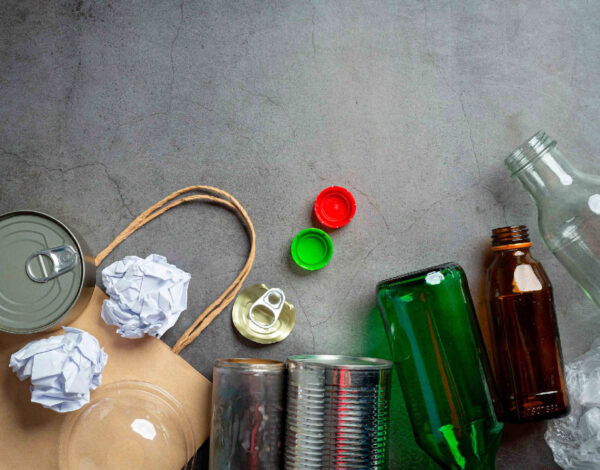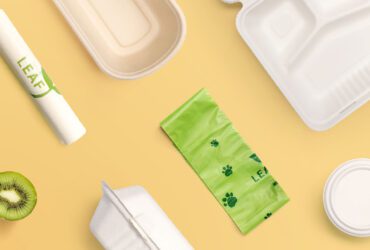
Making a difference for the environment
Maggie Liu CPA, CMA turned her fascination with nature documentaries into becoming a champion for environmental education.
We’ve all done it. Sometimes it’s part of our weekly routine or maybe it’s a reward for a hard week. Weekday coffee purchases, weekend takeout orders, bottled water on your grocery list—but do you ever pause and wonder where all this plastic ends up? That’s what Maggie Liu CPA, CMA thinks about.
Maggie and her husband, Jerry Gao, devote their time and energy to helping the environment as the co-founders of LEAF Environmental Products, an effective cost-efficient, environmentally friendly product solutions company.
Like most entrepreneurs, Maggie’s drive to make a difference started from passionate beginnings. “Jerry and I both love nature. We are fascinated with nature documentaries,” says Maggie. “And from time to time, documentaries show sea turtles strangled by a piece of plastic in the ocean. We felt that, as humans and as a society, we needed to do something.”
That’s why Maggie and Jerry decided to start LEAF, which has grown into a successful company.
LEAF produces numerous compostable products sold through retailers across Canada and used in various business, at universities, in Calgary office buildings, and more. Their products are fully compostable, which makes them an environmentally friendly alternative to single-use plastics—one of the most prevalent threats to our environment. These environmentally sustainable solutions range from garbage bags, dog waste bags, cutlery, and packaging, to even coffee cups and lids.
A champion for environmental education, Maggie wants to raise awareness around the pervasive issue of plastic and pollution. One way she does this is by sharing simple tips you can incorporate to develop a more sustainability-focused lifestyle.
The reduce, reuse, recycle philosophy
“This is a perfect reminder of the way we should approach our consumption behavior,” explains Maggie. “Most plastic products can be avoided if we just reduce our consumption. Any time you want to purchase something, ask yourself if you really need it. Reducing is better than reusing, and reusing is better than recycling.”
This small change can not only save the environment, but your wallet as well. Buying a cup of coffee may feel satisfying in the moment, but the waste it produces can have a large impact.
Incorporate reusable products into your routine
If you’re looking to make a change, you can start small. You’re more likely to adopt a new routine if changes are easy—especially if they fit into your day-to-day activities.
“Use compostable produce bags or reusable grocery bags,” suggests Maggie. “You can even talk to your neighbourhood grocery store and suggest they provide compostable shopping bags instead of plastic ones. This is just one way to personally champion for environmental causes and plastic solutions.”
Avoid common mistakes
Maggie acknowledges that switching away from plastic products can be difficult. So if you are going to make a purchase or use plastics, be aware of a common misconception many consumers fall victim to.
“People often purchase biodegradable plastics thinking they are good for the environment. In reality, biodegradable products are more detrimental to the environment compared to regular plastics,” says Maggie.
Biodegradable plastics are manufactured to separate into millions of little pieces of micro-plastics, which are impossible to collect once in the environment. Their small size means they can get into water and soil systems with no means for recovery.
Biodegradable products are far worse than regular petrochemical-based plastics, which can be collected and recycled.
Use your voice to make a difference
Maggie encourages younger generations to use their voice to create a positive change for our environment and make an impact in their communities.
“Shape the future. Get involved. Talk to your MPs and MLAs about the rules around plastics,” says Maggie. “Numerous nations around the world have already banned single-use plastics, and Canada is lagging behind.”



